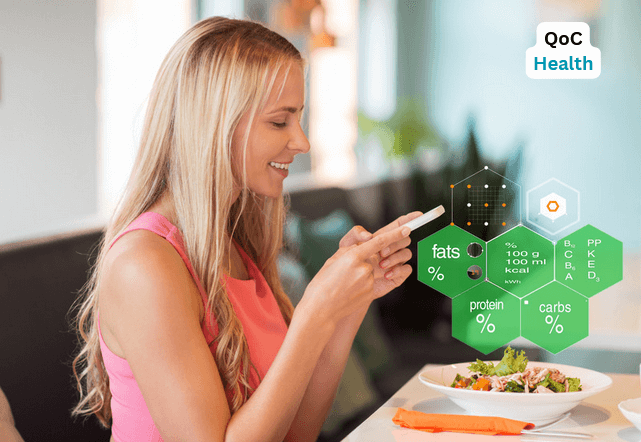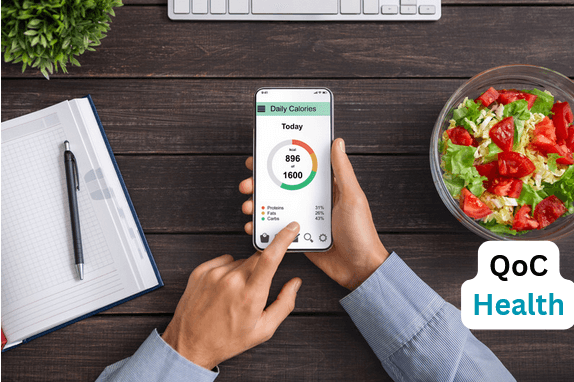In a world where fitness and health are at the forefront, calorie-counting apps have become a go-to tool for many. These apps claim to simplify your health journey by tracking your daily food intake. But the big question is, can they help you shed those extra pounds? This article aims to uncover the truth.
We investigate how these apps function, exploring their user-friendly features like meal logging and barcode scanning. They’re not just about counting calories; they also offer feedback on your overall diet. Many people rely on these digital tools to guide their weight loss journey, expecting real results. We’ll dissect the advantages and potential downsides of using these apps.
Whether you’re considering downloading one or just curious about its effectiveness, this article is your comprehensive guide to understanding calorie-counting apps and their impact on weight loss.
Understanding Calorie Counting Apps
Understanding calorie-counting apps goes beyond just tracking what you eat. These tools offer a window into your dietary habits and help you make informed choices. Here’s a deeper look into how these apps work:
Features and Functionality
Calorie-counting apps like Noom, Lose It!, and MyNetDiary offer various features that simplify tracking food intake. They allow you to log meals, scan barcodes, and even provide feedback on your food choices. This helps in understanding the calorie content and nutritional value of your consumption.
Nutritional Insight and Education
These apps are more than just calorie counters; they are educational tools. They provide valuable information about the nutrients in your food, helping you learn about balanced diets and healthy eating habits. This knowledge is crucial for making informed decisions about your diet.
Goal Setting and Monitoring Progress
Goal setting is a key component of these apps. They allow you to set personal weight loss or fitness goals and track your progress. This feature keeps you motivated and on track with your health objectives.
Integration with Fitness and Health Data
Many calorie-counting apps can sync with other health and fitness apps or devices. This integration provides a more comprehensive view of your overall health by combining diet, exercise, and other wellness data.
Each of these aspects contributes to the effectiveness of calorie-counting apps in managing your dietary habits and working towards your health goals.
The Pros of Calorie Counting Apps
The advantages of calorie-counting apps are widely discussed across various health and wellness platforms:
- Ease of Tracking and Accountability: These apps simplify food tracking, allowing quick meal logging and daily calorie count monitoring. Websites like Healthline emphasize how this feature aids in maintaining dietary accountability.
- Educational Aspect: Learning about Food and Nutrition: Users gain insights into foods’ nutritional value and calorie content. This educational component is highlighted in-app reviews and health forums, stressing its role in making healthier food choices.
- Personalized Goals and Feedback: The ability to set customized weight loss goals and receive tailored feedback is a key feature noted in user reviews and expert analyses. This personalization aspect is often cited as a motivating factor in users’ weight loss journeys.
- Community and Support Features: Many apps offer community support, enabling users to connect, share tips, and encourage each other. The value of this support network is frequently mentioned in user testimonials and health blogs, underscoring its role in facilitating weight loss and healthy lifestyle changes.
Calorie-counting apps have many benefits. They make tracking your diet easier and teach you about nutrition. They also offer personalized goals and community support. This can help you stay on track with your weight loss.
The Cons of Calorie Counting Apps

The limitations of calorie-counting apps are well-documented across various reputable sites:
- Potential for Inaccuracy: While these apps are designed to track calories, there can be discrepancies in their accuracy. Sources like Healthline discuss how inaccuracies in calorie counting can impact weight loss goals.
- Overemphasis on Calorie Counting Over Nutritional Value: Focusing solely on calories might lead to neglecting the overall nutritional quality of foods. Nutrition experts on websites like WebMD highlight the importance of balancing calorie counting with healthy awareness.
- Psychological Impact: Obsession and Stress: The constant monitoring of food intake can lead to stress or an unhealthy preoccupation with food. Mental health professionals and wellness blogs often discuss the need for a balanced eating and diet-tracking approach.
- Cost Factor: Some calorie-counting apps require a subscription or payment, which could be a barrier for some users. Financial considerations in choosing health apps are discussed on consumer review sites and financial advice blogs, where they compare free versus paid versions of these apps.
Related: Can Mobile Apps Help You Lose Weight?
Comparing Popular Calorie Counting Apps
Comparing popular calorie counting apps, each offers unique features tailored to different needs:
Noom
Renowned for its psychological approach, Noom focuses on understanding the reasons behind eating habits, not just tracking what you eat. This holistic approach is highlighted in reviews and user testimonials on platforms like Trustpilot and the Noom website.
Lose It!
Ideal for beginners, Lose It! is praised for its user-friendly interface. Features like barcode scanning for easy food logging make it a favorite among new users, as seen in user reviews on their website and app stores.
MyNetDiary
Suited for those with specific dietary needs, MyNetDiary allows customization for various diets like keto, vegan, or gluten-free. User reviews on health-focused websites and the app’s site emphasize its adaptability to different dietary requirements.
Each app [1]caters to different aspects of diet tracking and offers unique tools to assist in weight loss and healthy living.
Real-World Success Stories and Limitations
Real-world stories from users of calorie-counting apps often highlight success in losing weight and achieving healthier lifestyles. Websites like Healthline and MyFitnessPal feature numerous accounts where individuals share their weight loss journeys, attributing success in part to these apps. However, it’s important to note that only some experience the same results. Some users report not seeing the weight loss they expected.
Experts and user experiences suggest that these apps are most effective when integrated into a broader health strategy that includes healthy eating and regular exercise. It’s crucial to remember that individual bodies respond differently to diets and exercises, so what works well for one person might be less effective for another. This highlights the importance of a personalized approach to weight management.
Expert Opinions
Nutritionists and dietitians offer valuable insights about calorie counting apps. They acknowledge these tools can be helpful but emphasize they need to be a standalone solution for weight loss. Experts suggest using these apps in conjunction with professional health advice. A balanced diet and regular exercise are fundamental, they remind us.
Additionally, they caution against over-reliance on these apps, warning that an obsession with calorie counting could negatively impact mental health. The focus, they advise, should be on overall health and well-being, not just the numbers.
These perspectives underscore the importance of a holistic approach to weight management, integrating technology with traditional health principles.
Conclusion
So, are calorie-counting apps worth it? Yes, they can be helpful tools for weight loss when used correctly. They teach you about food and help track your diet. But remember, they’re just one part of a healthy lifestyle. It’s important to eat nutritious foods and exercise regularly. And always listen to your body and mind. Balancing these elements is the best way to reach your health goals.
- How To increasebrown fat: What To Take? - July 23, 2024
- Does Brown Fat Make You Lose Weight? Benefits And Impact - July 21, 2024
- Does Coffee Increase Brown Fat? - July 15, 2024
